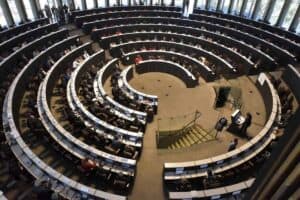A novel political landscape: Speculation arises about an ANC-driven coalition between the ruling party, the EFF and other parties.

A second coalition comprising the ANC, the Economic Freedom Fighters (EFF) and other parties outside the Multi-Party Charter for SA could emerge in future to govern, which would see the former liberation movement in the driving seat.
Those contemplated for the new coalition were the liberation movement parties comprised the ANC, Pan Africanist Congress of Azania (PAC) and Azanian Peoples Organisation (Azapo) and the “ANC breakaways” that directly and indirectly established themselves away from the ruling party.
But no party had come forward to propose the idea or call exploratory talks. This as the political realignment appears to follow a dual direction in the South African political landscape.
SA is slowly separating into those who support a capitalist, neoliberal system, including free market policies, against those backing left-leaning socialist oriented policies.
The socialist EFF is on the extreme left while the Freedom Front Plus is on the extreme right of the political divide.
The idea is being mulled by some within the ANC and the smaller parties left out of the Democratic Alliance-led Multi-Party Charter.
Some thought this was an opportunity for the black parties to unite and run the country.
A member of a small party, who requested anonymity, said: “We can even get a two-thirds majority if we commit ourselves and put aside all our ideological differences. This is something that we should have done in 1994, but at the time were emotionally attached to our ideologies.”
Thanks to the DA and its right and centre-right allies that rejected the ANC and EFF as possible partners in their newly formed grouping, these parties could explore a new path to an alternative coalition with small black parties.
Political analysts canvassed by The Citizen did not rule out the possibility of a new ANC-led coalition.
Director of the Centre for Peace, Security and Conflict Resolution at Nelson Mandela University, Prof Ntsikelelo Breakfast, said this was not surprising.
“Desperate times call for desperate measures. The ANC and the EFF are ideologically close to each other,” he said.
He said the two parties alone could form a government, and that the Multi-Party Charter didn’t have enough muscle to become a government by themselves.
However, the ANC and EFF differ on land reform – especially land expropriation without compensation – as well as the ownership of the SA Reserve Bank.
“The point must be made that there is no political party in this country that can dislodge the ANC by itself,” said Breakfast.
Political analyst Dirk Kotze of Unisa said such a coalition was already in place in Joburg, where the ANC along with EFF, United Democratic Movement (UDM), Patriotic Alliance and the PAC formed a government of local unity.
“All those parties that in some way can be aligned to the ANC that are left or left of the centre, are part of the ANC group in Joburg. In that sense, it’s not just a possibility but something that’s quite real. I don’t think it’s necessarily a consolidation of the left because it’s not really by choice.” Bantu Holomisa, the leader of UDM – which was left out of the Multi-Party Charter – said there was a new stream of parties that may be interested in joining a coalition, whose format has to be negotiated before the polls.
“This depends on how they structure coalitions after the elections.
“But for now they will go to the elections as individuals, and they will identify areas where they can campaign together in preparation to form a post-election government,” he said.
“If we were to do that, we would be marching towards a two-party system. However this process does not depend on the liberation movements, considering that the ANC tripartite Alliance had failed the country.”
Support Local Journalism
Add The Citizen as a Preferred Source on Google and follow us on Google News to see more of our trusted reporting in Google News and Top Stories.






